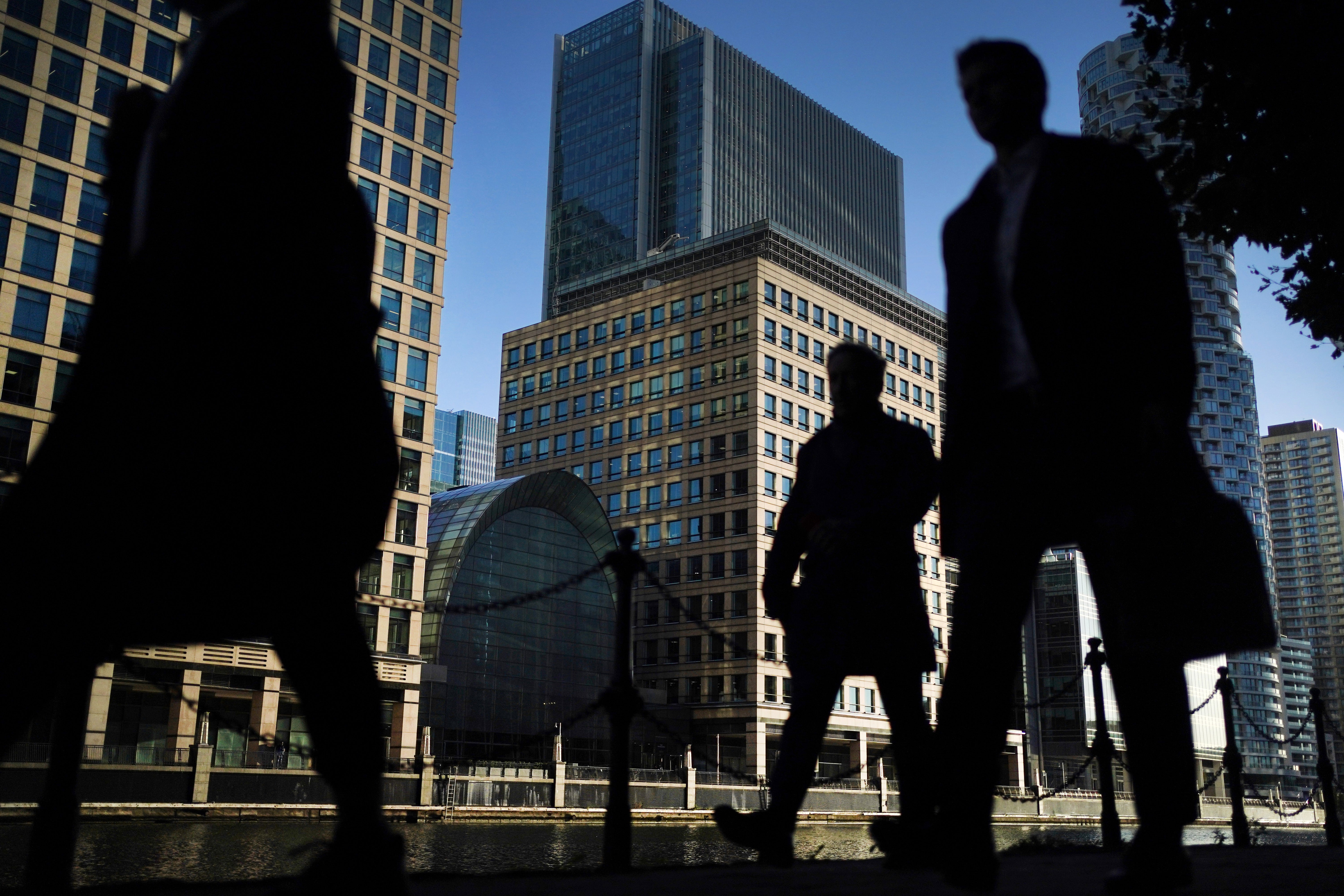Black employees have consistently earned less than white peers over past decade
Think tank boss said figures are ‘absolutely shameful’

Your support helps us to tell the story
From reproductive rights to climate change to Big Tech, The Independent is on the ground when the story is developing. Whether it's investigating the financials of Elon Musk's pro-Trump PAC or producing our latest documentary, 'The A Word', which shines a light on the American women fighting for reproductive rights, we know how important it is to parse out the facts from the messaging.
At such a critical moment in US history, we need reporters on the ground. Your donation allows us to keep sending journalists to speak to both sides of the story.
The Independent is trusted by Americans across the entire political spectrum. And unlike many other quality news outlets, we choose not to lock Americans out of our reporting and analysis with paywalls. We believe quality journalism should be available to everyone, paid for by those who can afford it.
Your support makes all the difference.The “absolutely shameful” ethnicity pay gap in the UK has persisted over the last decade, with Black, African, Caribbean and Black British employees consistently earning less than white employees between 2012 and 2022.
Figures from the Office for National Statistics show last year Black, African, Caribbean or Black British employees earned, on average, £13.53 hourly pay while white employees earned £14.35 - this trend has been consistent since 2012.
Dr Shabna Begum, interim co-CEO of the Runnymede Trust, a race equality think tank, described the latest statistics as “absolutely shameful” and called on the government to force employers to report ethnicity pay gaps.
“Mandatory, intersectional pay gap reporting is a vital first step in measuring and understanding the scale of pay disparities in workplaces, and driving accountability, transparency and action,” she added.
In the last 10 years Black employees were the only ethnic group to be consistently earning less than white workers, while in 2022 Asian or Asian British employees earned more than white employees, with a pay gap of -3.3 per cent.
However, based on the more detailed ethnicity classification of Asian or Asian British employees in England and Wales, Chinese and Indian employees had higher earnings compared with white British workers, while Bangladeshi and Pakistani employees earned less compared with white British employees.
The highest earnings were reported by white Irish employees (£20.20 median gross hourly pay), which represents a pay gap of -40.1 per cent relative to White British counterparts.
Dr Shabna Begum said: “That the ethnicity pay gap has not only remained consistent, but has actually widened for some groups over the past decade is absolutely shameful. The new data is particularly concerning from an intersectional perspective.
“Our analysis shows that the pay gap between white British men and Arab women has increased since 2019, from 9.4% to 20.5%, and for Bangladeshi women from 23.1% to 28.4%. There is also clearly evidence that hostile migration policies are impacting the salary outcomes of Black migrant workers, who are earning a shocking 12% less than their UK-born white counterparts.
“Mandatory, intersectional pay gap reporting is a vital first step in measuring and understanding the scale of pay disparities in workplaces, and driving accountability, transparency and action.
“However, we can’t tackle these widening gaps without tackling entrenched structural inequalities - from racism in education to the low-paid, insecure employment that workers of colour are more likely to be in. Narratives that ignore or downplay racialised inequalities, as well as debates that demonise migrants, all play a role in reproducing rather than rejecting these inequalities.
“Amid a cost of living crisis in which people of colour are disproportionately struggling to feed their families or keep the heating on, these gaps aren’t just data points, they represent people’s lived realities and demand immediate, overdue action.”
A Government spokesperson said:“Our guidance for employers on voluntary ethnicity pay reporting sets out best practice on measuring and reporting on ethnicity pay gaps.
“Ethnicity pay gap reporting is more complex than gender pay reporting. We will continue to support employers in measuring pay gaps and identify examples of good practice. This is part of delivering our Inclusive Britain action plan to tackle unjust disparities in employment, education, health and criminal justice.”
Join our commenting forum
Join thought-provoking conversations, follow other Independent readers and see their replies
Comments